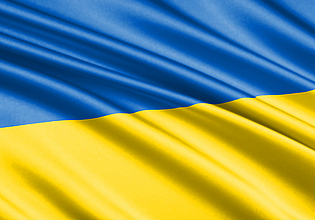News | Monday, 13 June 2022
Leopoldina and other academies support Ukrainian researchers

Photo: Maxim Grebeshkov / Adobe Stock
Ukrainian scientists will receive increased support in the future to continue their research despite the impact of the ongoing invasion by Russian forces. At a meeting in Warsaw, a 10-point plan was developed for this purpose, which was published today. The participants of this meeting are the National Academy of Sciences of Ukraine, the Polish Academy of Sciences, the US National Academy of Sciences, the British Royal Society, the Royal Danish Academy of Sciences and Letters, the German National Academy of Sciences Leopoldina and the Association of European Academies ALLEA.
“The National Academy of Sciences of Ukraine belongs to the international family of academies. In the current situation, it is important to provide protection and work opportunities for individual researchers and keep the Ukrainian science system as a whole functioning during the time war. After all, research infrastructure can significantly contribute to the reconstruction of the country,” says Professor (ETHZ) Dr Gerald Haug, President of the Leopoldina.
The 10-point plan aims to build a strong science, innovation, research and education system in Ukraine. It was recognised during the discussions that it is difficult to make progress and keep research ongoing given the still persistent invasion by Russian forces, the Academies stated. Therefore, they strongly encourage a focus on rebuilding a modern and globally integrated science education and innovation system in developing programmes and funding commitments for the reconstruction of Ukraine. While some of the actions outlined in the 10-point plan could be implemented in the near term, others will depend on the evolving military and security situation in Ukraine. In preparing the plan, previous experience in dealing with countries affected by war was taken into account, the academies noted.
The 10-point plan proposes, among other things, that Ukrainian researchers receiving temporary appointments abroad maintain institutional affiliations in Ukraine in order to encourage repatriation once hostilities cease and the overall situation improves. Other measures include: funding programms directed to early-career researchers from Ukraine and their teams, including such using remote working agreements; funding programms for joint research by international teams with researchers working in Ukraine; providing access to specialised research facilities abroad; establishing brain circulation measures for Ukrainian researchers for networking and mutual learning with colleagues and organisations in the international scientific community; strategic positioning of Ukrainian science during the period of post-war science recovery. In order to optimise the impact of these measures, avoid redundancies and make meaningful use of synergies, a coordination council is to be established.
